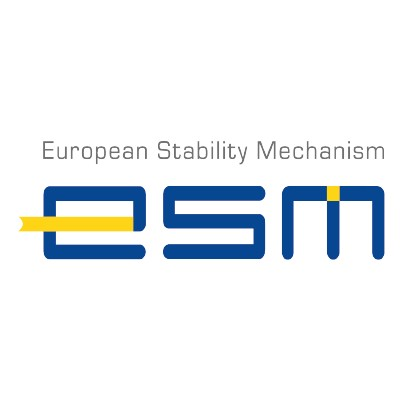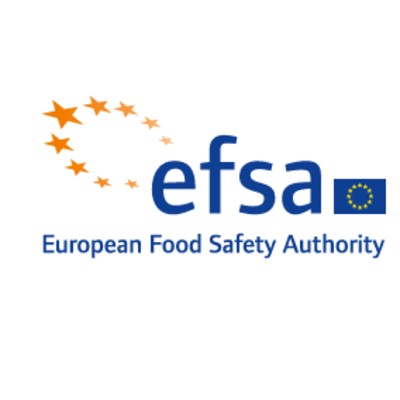Hungary's Cultivated Meat Ban: A Recipe for Controversy
October 26, 2024, 4:11 am

Location: Belgium, Brussels-Capital, Brussels
Employees: 1001-5000
Founded date: 1958

Location: Italy, Emilia-Romagna, Parma
Employees: 501-1000
Founded date: 2002

Location: Netherlands, Limburg, Maastricht
Employees: 51-200
Founded date: 2015
Total raised: $280.86M
The European Commission has stirred the pot over Hungary's proposed ban on cultivated meat, deeming it "unjustified" and a potential threat to the EU's single market. This clash of culinary ideologies is more than just a local spat; it’s a reflection of broader tensions within the European Union regarding food innovation, consumer choice, and market regulation.
In July 2024, Hungary served up a controversial dish: a proposed ban on cultivated meat. This move was framed as a protective measure for traditional culinary practices. However, the European Commission quickly stepped in, labeling the ban as “unjustified.” The Commission’s opinion is not just a slap on the wrist; it highlights the importance of scientific evidence in shaping food policy across the EU.
The European Food Safety Authority (EFSA) oversees the approval of novel foods, including cultivated meat. The Commission emphasized that no cultivated meat products have yet received the green light in Europe. Thus, a ban is not only premature but could disrupt the harmonized authorization process that ensures food safety across member states. The Commission’s stance is clear: scientific assessment is paramount.
Hungary’s proposal is not an isolated incident. Italy, Austria, and France have also flirted with similar bans. Italy, in particular, has already enacted its ban, albeit under questionable legal circumstances. The Italian government bypassed the necessary TRIS procedure, which is designed to prevent barriers to the free movement of goods within the EU. This procedural misstep has left Italy’s ban vulnerable to challenge.
The TRIS procedure allows member states to express concerns about proposed legislation that could hinder the single market. Hungary’s attempt to sidestep this process has drawn criticism from several member states, including Sweden, Lithuania, and the Netherlands. These countries argue that Hungary has failed to provide adequate evidence to support its claims that cultivated meat poses health risks.
Sweden pointed out that Hungary’s arguments are “unacceptable” and lack scientific backing. Lithuania echoed this sentiment, emphasizing the need for the EU to remain competitive in the global market for alternative proteins. The Czech Republic also weighed in, advocating for innovation in food technology rather than restrictions.
The pushback from these nations underscores a critical point: the future of food in Europe is at stake. As the global population continues to rise, the demand for protein will increase. Cultivated meat could play a vital role in meeting this demand sustainably. The Netherlands, a leader in cultivated meat research, has suggested that instead of banning these products, Hungary could explore ways to integrate in-vitro meat production into existing agricultural practices. This approach could benefit farmers and ensure the agricultural sector remains viable.
Public sentiment also plays a crucial role in this debate. A recent survey conducted by the Good Food Institute Europe revealed that a significant majority of EU consumers are open to trying cultivated meat, provided it is deemed safe by regulators. This indicates a growing acceptance of innovative food technologies among the public, which contrasts sharply with the resistance from certain governments.
The EU Commission’s rejection of Hungary’s ban is not just about cultivated meat; it’s about the principles of free trade and consumer choice. The EU’s single market is built on the idea that goods should move freely across borders without arbitrary restrictions. Hungary’s proposed ban threatens to undermine this foundational principle.
Moreover, the Commission has warned Hungary that it must respond to the concerns raised by other member states by mid-January 2025. Failure to comply could lead to legal action in the European Court of Justice. This looming deadline adds pressure on Hungary to reconsider its stance.
The debate over cultivated meat is emblematic of a larger struggle within the EU. On one side, there are traditionalists who cling to established agricultural practices. On the other, there are innovators pushing for a more sustainable and technologically advanced food system. This clash is not merely academic; it has real-world implications for farmers, consumers, and the environment.
As the EU grapples with these issues, it must navigate the delicate balance between tradition and innovation. The future of food in Europe may very well depend on how it resolves this conflict. The stakes are high, and the outcome will shape the culinary landscape for generations to come.
In conclusion, Hungary’s proposed ban on cultivated meat has ignited a firestorm of debate within the EU. The European Commission’s intervention underscores the importance of scientific evidence and market harmonization. As member states voice their opinions, the future of cultivated meat hangs in the balance. Will Europe embrace innovation, or will it cling to tradition? Only time will tell, but one thing is certain: the conversation is far from over.
In July 2024, Hungary served up a controversial dish: a proposed ban on cultivated meat. This move was framed as a protective measure for traditional culinary practices. However, the European Commission quickly stepped in, labeling the ban as “unjustified.” The Commission’s opinion is not just a slap on the wrist; it highlights the importance of scientific evidence in shaping food policy across the EU.
The European Food Safety Authority (EFSA) oversees the approval of novel foods, including cultivated meat. The Commission emphasized that no cultivated meat products have yet received the green light in Europe. Thus, a ban is not only premature but could disrupt the harmonized authorization process that ensures food safety across member states. The Commission’s stance is clear: scientific assessment is paramount.
Hungary’s proposal is not an isolated incident. Italy, Austria, and France have also flirted with similar bans. Italy, in particular, has already enacted its ban, albeit under questionable legal circumstances. The Italian government bypassed the necessary TRIS procedure, which is designed to prevent barriers to the free movement of goods within the EU. This procedural misstep has left Italy’s ban vulnerable to challenge.
The TRIS procedure allows member states to express concerns about proposed legislation that could hinder the single market. Hungary’s attempt to sidestep this process has drawn criticism from several member states, including Sweden, Lithuania, and the Netherlands. These countries argue that Hungary has failed to provide adequate evidence to support its claims that cultivated meat poses health risks.
Sweden pointed out that Hungary’s arguments are “unacceptable” and lack scientific backing. Lithuania echoed this sentiment, emphasizing the need for the EU to remain competitive in the global market for alternative proteins. The Czech Republic also weighed in, advocating for innovation in food technology rather than restrictions.
The pushback from these nations underscores a critical point: the future of food in Europe is at stake. As the global population continues to rise, the demand for protein will increase. Cultivated meat could play a vital role in meeting this demand sustainably. The Netherlands, a leader in cultivated meat research, has suggested that instead of banning these products, Hungary could explore ways to integrate in-vitro meat production into existing agricultural practices. This approach could benefit farmers and ensure the agricultural sector remains viable.
Public sentiment also plays a crucial role in this debate. A recent survey conducted by the Good Food Institute Europe revealed that a significant majority of EU consumers are open to trying cultivated meat, provided it is deemed safe by regulators. This indicates a growing acceptance of innovative food technologies among the public, which contrasts sharply with the resistance from certain governments.
The EU Commission’s rejection of Hungary’s ban is not just about cultivated meat; it’s about the principles of free trade and consumer choice. The EU’s single market is built on the idea that goods should move freely across borders without arbitrary restrictions. Hungary’s proposed ban threatens to undermine this foundational principle.
Moreover, the Commission has warned Hungary that it must respond to the concerns raised by other member states by mid-January 2025. Failure to comply could lead to legal action in the European Court of Justice. This looming deadline adds pressure on Hungary to reconsider its stance.
The debate over cultivated meat is emblematic of a larger struggle within the EU. On one side, there are traditionalists who cling to established agricultural practices. On the other, there are innovators pushing for a more sustainable and technologically advanced food system. This clash is not merely academic; it has real-world implications for farmers, consumers, and the environment.
As the EU grapples with these issues, it must navigate the delicate balance between tradition and innovation. The future of food in Europe may very well depend on how it resolves this conflict. The stakes are high, and the outcome will shape the culinary landscape for generations to come.
In conclusion, Hungary’s proposed ban on cultivated meat has ignited a firestorm of debate within the EU. The European Commission’s intervention underscores the importance of scientific evidence and market harmonization. As member states voice their opinions, the future of cultivated meat hangs in the balance. Will Europe embrace innovation, or will it cling to tradition? Only time will tell, but one thing is certain: the conversation is far from over.